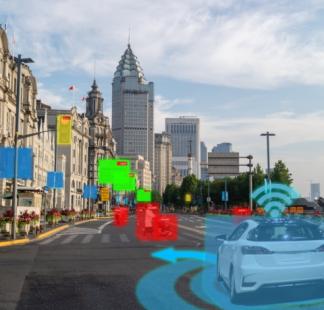Displaying 49 - 60 of 102
23 Jun 2026 - 24 Jul 2026
Online instructor led
Many countries have begun to develop smart villages/towns/cities with varying degrees of success. This course focuses on the design and…
Registration:
Open until 16 Jun 2026
Languages:
- English
06 Jul 2026 - 19 Jul 2026
Online instructor led
The first focus of this course is on the application, practice and development opportunities of AI in the healthcare industry, with a particular…
Registration:
Open until 01 Jul 2026
Languages:
- English
Open
Online self-paced
This training course empowers start-up and scale-up women entrepreneurs by developing green digital entrepreneurship knowledge and skills in order to…
Languages:
- English
20 Jul 2026 - 24 Jul 2026
Online instructor led
This course is structured to provide mid and senior level officers working in governments, a nuanced understanding of spectrum policies, regulatory…
Registration:
Open until 22 Jun 2026
Languages:
- English
20 Jul 2026 - 31 Jul 2026
Online instructor led
This comprehensive training program equips participants with in-depth knowledge of Low Earth Orbit (LEO) communication satellites and their diverse…
Registration:
Open until 10 Jul 2026
Languages:
- English
Open
Online self-paced
Focusing on protecting civilian aspects of cyberspace, this course covers the overarching principles and good practices in drafting, developing, and…
Languages:
- English
- French
- Russian
- Spanish
03 Aug 2026 - 07 Aug 2026
Face to Face
This training course will equip participants with the knowledge and tools to design and implement secure, interoperable, and citizen-focused digital…
Registration:
Open until 30 Apr 2026
Languages:
- English
17 Aug 2026 - 24 Aug 2026
Online instructor led
This course will focus on 5G-Advanced Mobile Broadband and Future Services, including technologies, regulation and business aspects. It will cover…
Registration:
Open until 16 Aug 2026
Languages:
- English
Open
Online self-paced
This self-paced online course on inclusive digital communication during crises and emergency situations has been developed in response to the COVID-…
Languages:
- Arabic
- English
- French
- Spanish
17 Aug 2026 - 11 Sep 2026
Online instructor led
This training covers the entire radio spectrum ecosystem, with a focus on the use of the high frequency (HF) band. It also introduces international…
Registration:
Open until 27 Jul 2026
Languages:
- English
17 Aug 2026 - 21 Aug 2026
Face to Face
This training provides a comprehensive understanding of the key challenges and success factors involved in investing in digital government with a…
Registration:
Open until 17 May 2026
Languages:
- English
Open
Online self-paced
The training course aims at raising awareness and increasing the capacity of ITU members, stakeholders and policy-makers to address the two global…
Languages:
- English
- French
- Spanish








